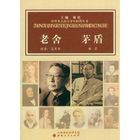The question has been asked whether we ought not to regard these communal arrangements as derived from the exclusive right of ownership, and the power of coercion vested in the lord of the soil. I think that many features in the constitution of the thirteenth century manor show its gradual growth and comparatively recent origin. The so-called manorial system consists, in truth, in the peculiar connexion between two agrarian bodies, the settlement of villagers cultivating their own fields, and the home-estate of the lord tacked on to this settlement and dependent on the work supplied by it. I take only the agrarian side, of course, and do not mention the political protection which stands more or less as an equivalent for the profits received by the lord from the peasantry. And as for the agrarian arrangement, we ought to keep it quite distinct from forms which are sometimes confused with it through loose terminology. A community paying taxes, farmers leasing land for rent, labourers without independent husbandry of their own, may be all subjected to some lord, but their subjection is not manorial. Two elements are necessary to constitute the manorial arrangement, the peasant village and the home farm worked by its help.
If we turn now to the evidence of the feudal period, we shall see that the labour-service relation, although very marked and prevalent in most cases, is by no means the only one that should be taken into account. In a large number of cases the relation between lord and peasants resolves itself into money payments, and this is only another way of saying that the manorial group disaggregates itself. The peasant holding gets free from the obligation of labouring under the supervision of the bailiff, and the home estate may be either thrown over or managed by the help of hired servants and labourers.
But alongside of these facts, testifying to a progress towards modern times, we find survivals of a more ancient order of things, quite as incompatible with manorial husbandry. Instead of performing work on the demesne, the peasantry are sometimes made to collect and furnish produce for the lord's table and his other wants. They send bread, ale, sheep, chicken, cheese, etc., sometimes to a neighbouring castle and sometimes a good way off.
When we hear of the firma unius noctis, paid to the king's household by a borough or a village, we have to imagine a community standing entirely by itself and taxed to a certain tribute, without any superior land estate necessarily engrafted, upon it; a home farm may or may not be close by, but its management is not dependent on the customary work of the vill (consuetudines villae), and the connexion between the two is casual. The facts of which I am speaking are certainly of rare occurrence and dying out, but they are very interesting from a historical point of view, they throw light on a condition of things preceding the manorial system, and characterised by a large over-lordship exacting tribute, and not cultivating land by help of the peasantry.
We come precisely to the same conclusion by another way. The feudal landlord is represented in the village by his demesene land, and by the servants acting as his helpers in administration. Now, the demesne land is often found intermixed with the strips of the peasantry. This seems particularly fitted for a time when the peasantry did not collect to work on a separate home farm, but simply devoted one part of the labour on their own ground to the use of the lord. What I mean is, that if a demesne consisted of, say, every fifth acre in the village fields, the teams of four virgaters composing the plough would traverse this additional acre after going over four of their own instead of being called up under the supervision of the bailiff, to do work on an independent estate. The work performed by the peasants when the demesne is still in intermixture with the village land, appears as an intermediate stage between the tribute paid by a practically self-dependent community, and the double husbandry of a manorial estate linked to a village.















